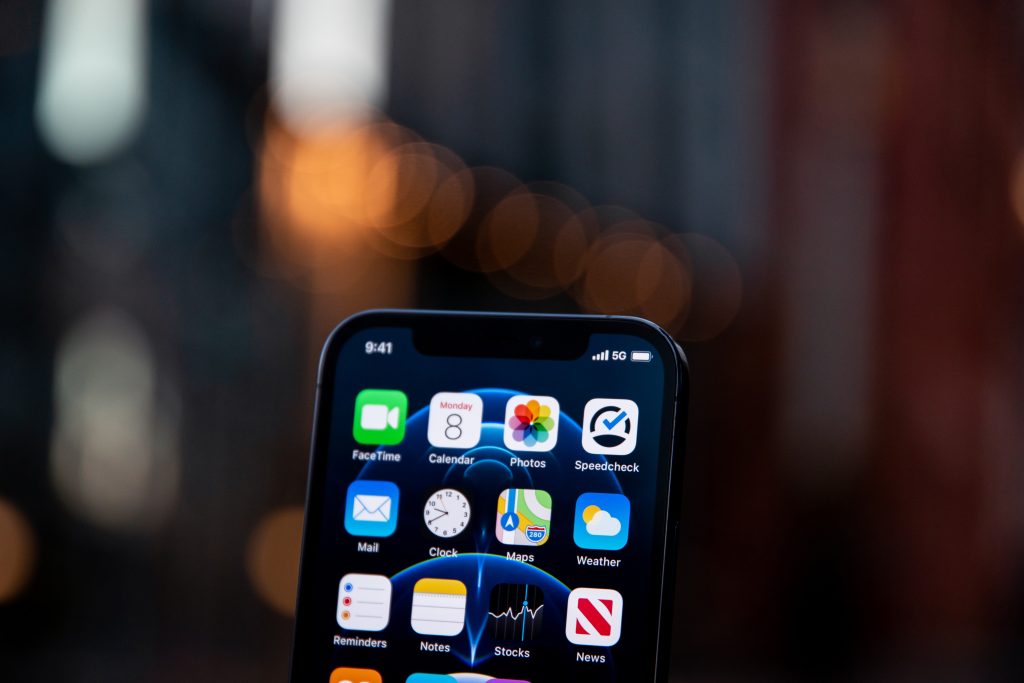Last Updated on September 7, 2022

Modern cellular networks employ the most cutting-edge technologies to offer mobile phone users the best services. The fifth generation of cellular network technology, or 5G, gives users extra benefits. In various parts of the world, it is gradually replacing 4G networks, which serve smartphone users’ data access needs. The network helps individuals and developers install applications more quickly. To make the best choice regarding whether to upgrade from 4G or not, it is crucial to fully understand the benefits and drawbacks of the 5G network.
What is 5G?
Each of the first four generations, with 3G and 4G focusing on enhancing mobile data, introduced a new degree of connectedness. The fifth generation of mobile network technology is known as 5G. It aims to carry on this development and increase the use of mobile broadband connections. Together with 4G, 5G will eventually completely replace it.
The radio frequencies used by 5G are the same ones used by smartphones. However, this unique technology has greatly enhanced network connectivity and is opening up new possibilities for even more creative solutions. 5G is driving rapid advancement and enhancing user experiences, from connected sensors to automated production lines that respond to supply and demand. Almost everyone who uses a cellular connection is concerned about the impending transition from 4G to 5G.
How does 5G work?
A system of cell sites is used by 5G networks to segment their territory into sectors and transmit radio waves carrying encoded data. Each cell site needs to have a backhaul link, either wired or wireless, to the network’s main hub. Data encoding is altered by 5G, and carriers have a far wider range of airwave possibilities.
Similar to the encoding used by 4G LTE, 5G networks employ an encoding technique known as OFDM. With 5G’s ability to operate on any frequency, the new system makes “high-band,” short-range airways available that were inaccessible to 4G technology and allows for three very distinct 5G experiences: low, middle, and high.
All wireless communications use radio frequencies or spectrums to transmit information over the air. Although it uses higher radio frequencies known as millimeter waves, 5G is the same. Due to the millimeter waves’ reduced interference with other wireless communication signals, 5G networks are able to transmit data much more quickly.
To boost capacity and transmissions, 5G will also use many antennae and tiny transmitters on structures and different street features, such as park benches. The network will be able to accommodate more devices than just 4G if this is done.
Network slicing, a feature of 5G, even enables users to build subnetworks to specialize the connection for particular purposes. Network slicing lowers the chance of network overload so consumers can make use of the fast speeds. To further maximize its capabilities, a hospital might divide its 5G network into departments or floors.
Pros of 5G Network
1. High speeds
The most obvious benefit is this. In comparison to 4G and 4G LTE, 5G operates more quickly on mobile phones and other devices. Instead of taking minutes, it enables customers to download movies, videos, and music in seconds. The network’s anticipated 20 Gbps speed should allow businesses to use it for services like automation, cutting-edge web conferencing, etc. According to a recent poll, customers who used 5G downloaded content in less than 23 hours per day.
The actual speed a corporate customer can use from their 5G provider will rely on a number of factors, including proximity to towers, the carrier’s technological competence, and whether or not network components have been designed to enable multigigabit throughput.
2. Capacity
According to some estimations, 5G is capable of supporting up to 10 times more devices per square kilometre than 4G. As a result, businesses no longer need to weigh their wireless cellular and Wi-Fi strategies as either/or options. With 5G, businesses may switch between cellular and Wi-Fi connectivity as needed without worrying about performance being affected or mobile broadband accessibility being constrained, especially in high-congestion locations like Lagos and other significant urban centres. The additional capacity of 5G will enable businesses to deploy more connected devices to monitor systems and carry out other tasks, which will result in a dramatic rise in IoT.
3. Low latency
In comparison to 4G, 5G offers lower latency, which will effectively enable emerging applications like AI, IoT, and virtual reality. Additionally, it makes it simple for mobile phone users to browse the web and open websites. Another benefit is that it provides means to access the internet whenever you need to find some crucial information.
4. New generation of AI and machine learning-based services
A new wave of interactive services based on AI and machine learning will emerge thanks to 5G. For instance, augmented reality or virtual reality via video conferencing can imitate settings and assist staff in making better project-related decisions. Enterprises will be able to rely on services and applications that are more responsive and predictive than they are right now thanks to automation. According to speculations, the 5G network will support Web 3.0 and the metaverse.
Cons of 5G Network
1. Limited global coverage
The main drawback of 5G is that it only has local availability and has patchy global coverage. Only urban areas will see significant benefits from the 5G network, and rural areas may not experience coverage for several years. Furthermore, compared to other networks, the costs associated with installing tower stations are significant.
2. Cybersecurity issues
One of the issues with 5G is cybersecurity because hacking will happen. The increase in bandwidth makes it simple for thieves to grab the database. Additionally, the software it employs makes it subject to attacks. Attacks are quite likely when 5G connects to more devices. As a result, organizations and corporations should invest in a security operations centre to safeguard their infrastructure.
3. Battery damages
Another drawback of 5G technology is that it impairs cellular devices by shortening their lifespan and exhausting their batteries. Only a small number of manufacturers have so far released 5G-compatible mobile devices. While efforts are being made to produce 5G gadgets, experts say the technology is proving to be a problem for 4G devices because it frequently results in battery damage.
4. Lack of encryption early in the connection process
5G lacks encryption and hackers can plan their attacks with more precision which will affect the companies to a large extent. More bandwidth will strain current security monitoring and the network requires security measures to prevent cyber threats. Consumer education is necessary for enhancing security efficiently. On the other hand, efforts are being taken to improve security along with the initial rollout of 5G. Keeping all IoT devices updated with security patches will help overcome the problems with optimal results. Not only that, 5G users should follow some other measures to minimize unwanted problems.
Conclusion
If you want to make wise business decisions, it’s critical to grasp the benefits and drawbacks of the 5G network. By 2035, it is expected that 5G will revolutionize the way we work and inject $12 trillion into the global economy. Faster speeds and new potential for digital transformation are certainly exciting, but firms must assess whether the moment is right to invest in 5G. The network continues to have problems with coverage, security, and device compatibility.
Before you go…
Hey, thank you for reading this blog to the end. I hope it was helpful. Let me tell you a little bit about Nicholas Idoko Technologies. We help businesses and companies build an online presence by developing web, mobile, desktop and blockchain applications.
As a company, we work with your budget in developing your ideas and projects beautifully and elegantly as well as participate in the growth of your business. We do a lot of freelance work in various sectors such as blockchain, booking, e-commerce, education, online games, voting and payments. Our ability to provide the needed resources to help clients develop their software packages for their targeted audience on schedule is unmatched.
Be sure to contact us if you need our services! We are readily available.











